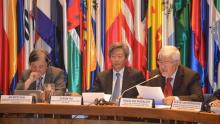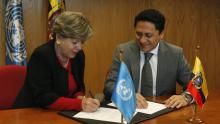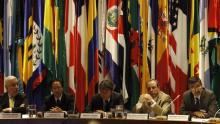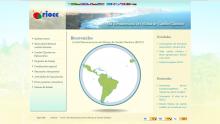News list
Search results
Showing 581 to 600 of 817 results in 41 pages.

22 January 2015 | News
20 January 2015 | Press Release
19 de January de 2015 | Announcement

19 de January de 2015 | News
15 January 2015 | Press Release
15 January 2015 | Speech
14 January 2015 | Announcement

12 January 2015 | News
8 de January de 2015 | Announcement

12 December 2014 | News
11 December 2014 | Infographic
10 December 2014 | Press Release
9 December 2014 | Announcement
5 December 2014 | News
4 de December de 2014 | Infographic
4 de December de 2014 | Infographic
4 de December de 2014 | Infographic